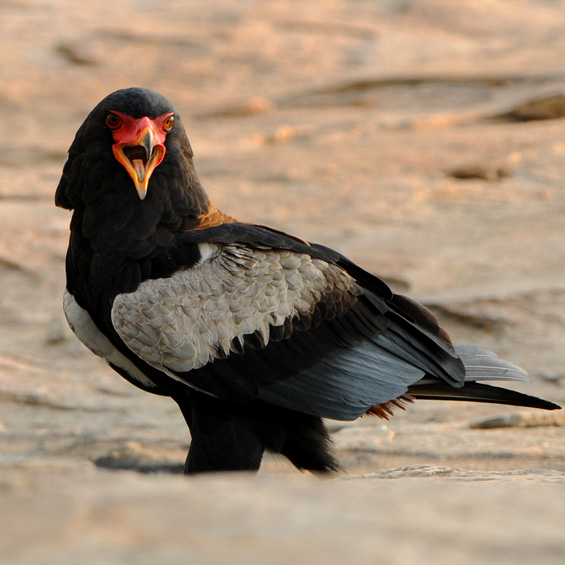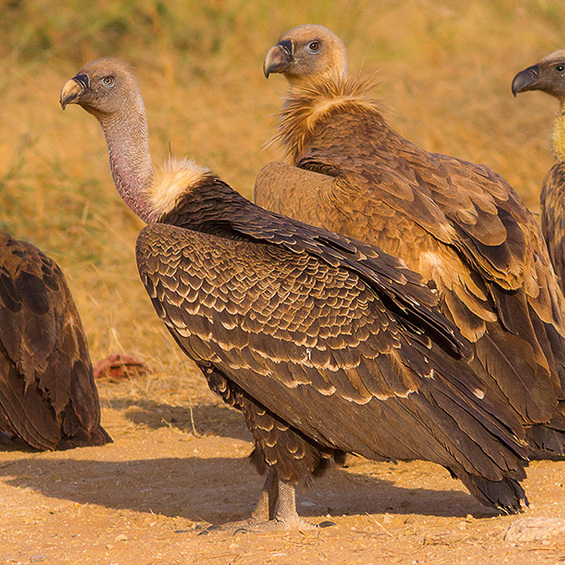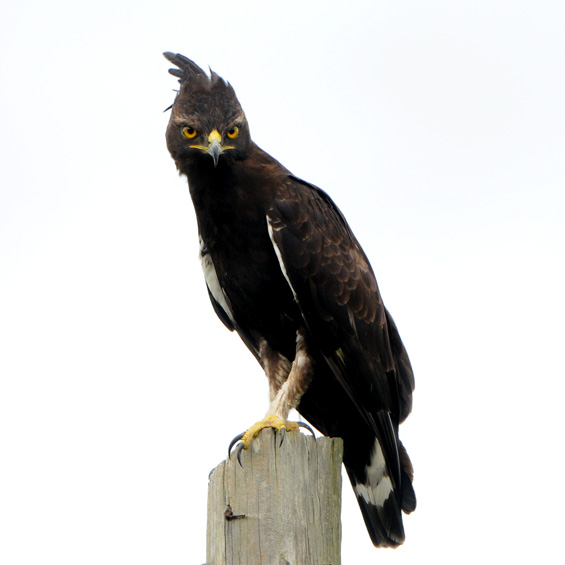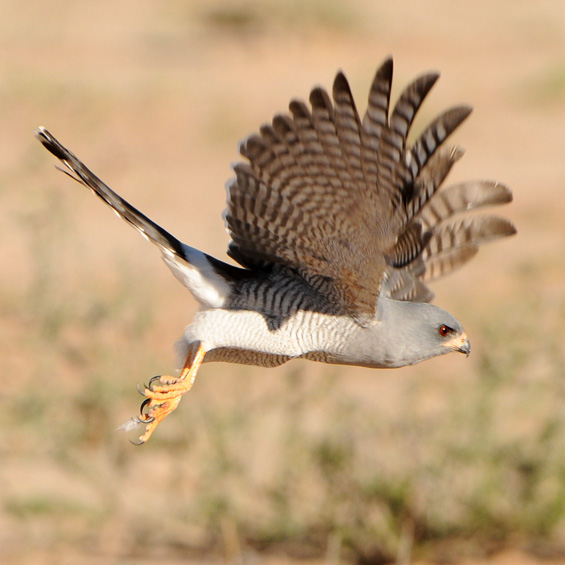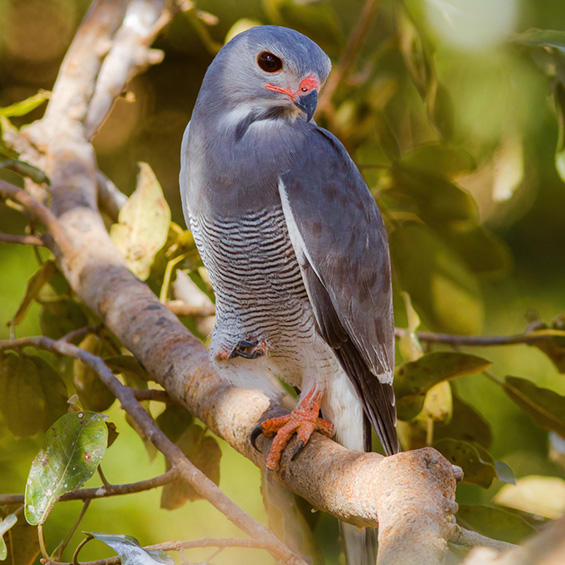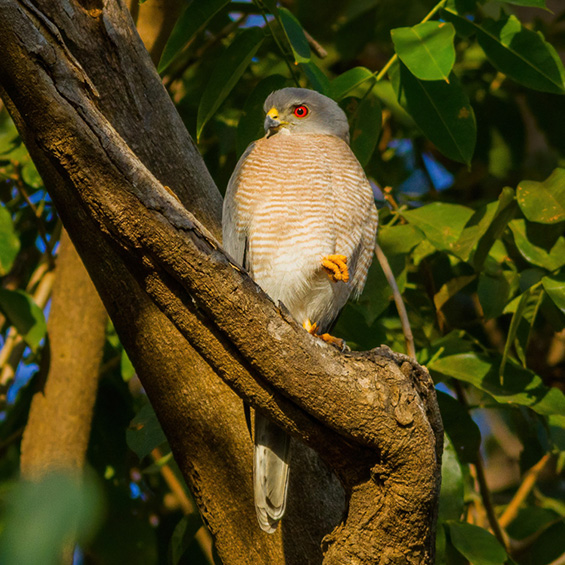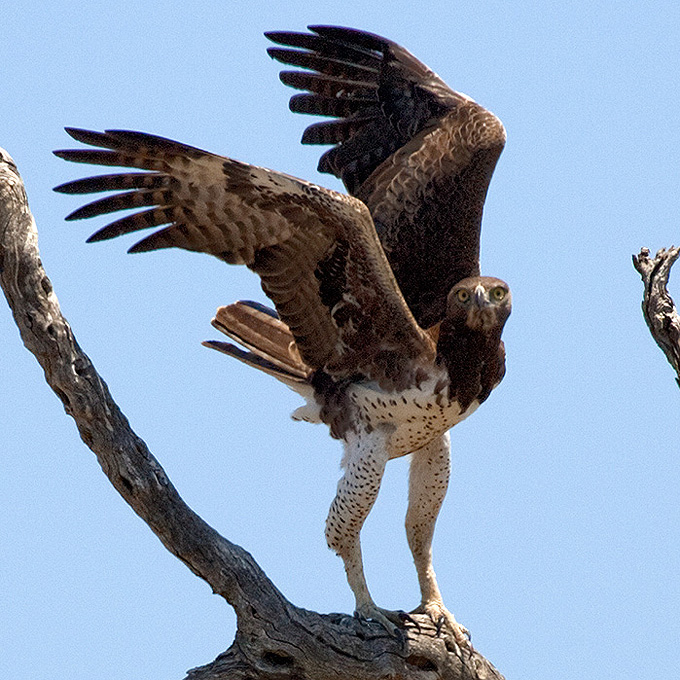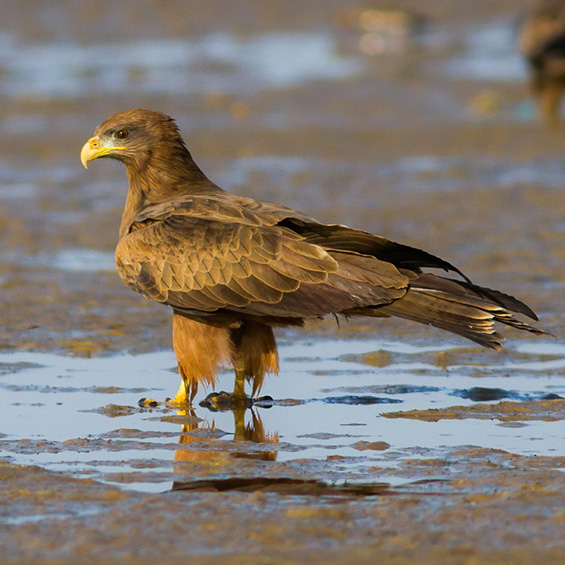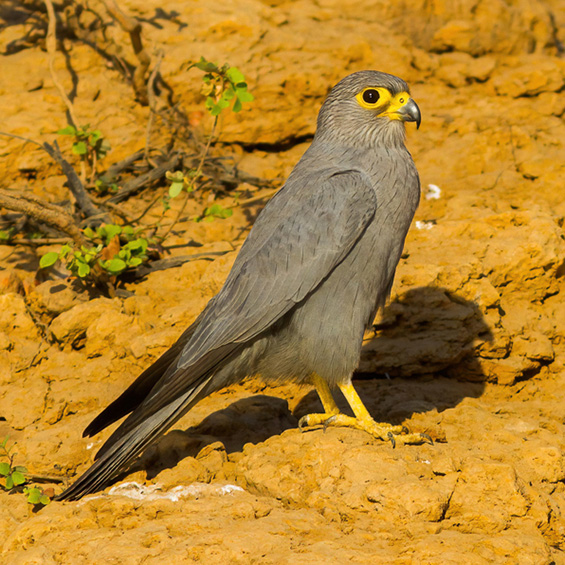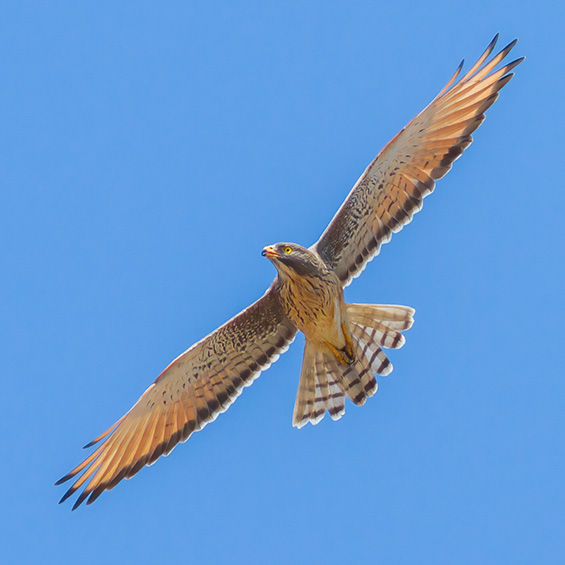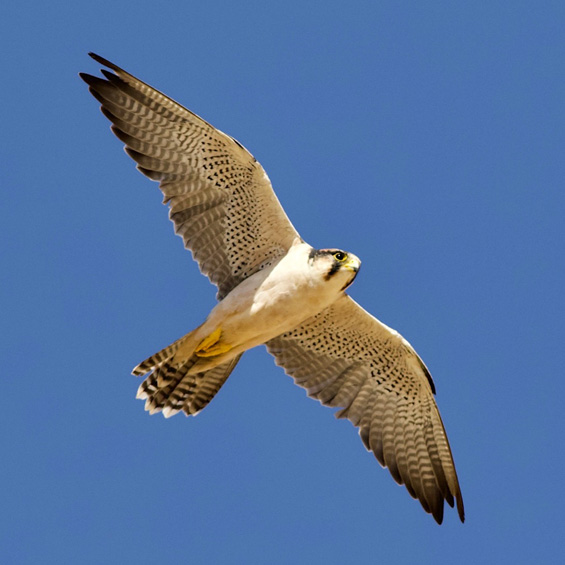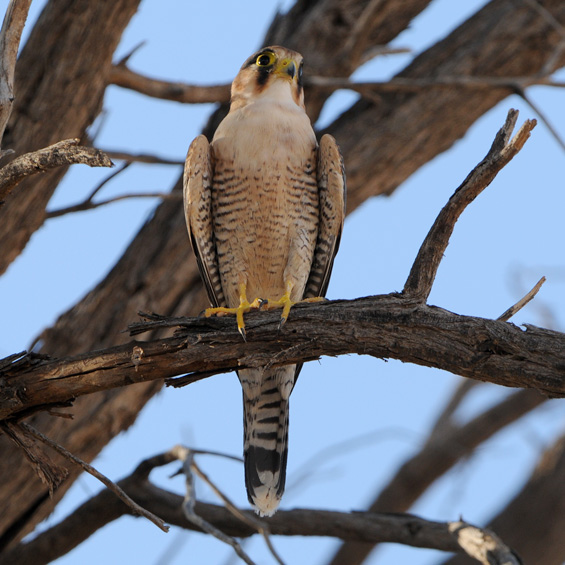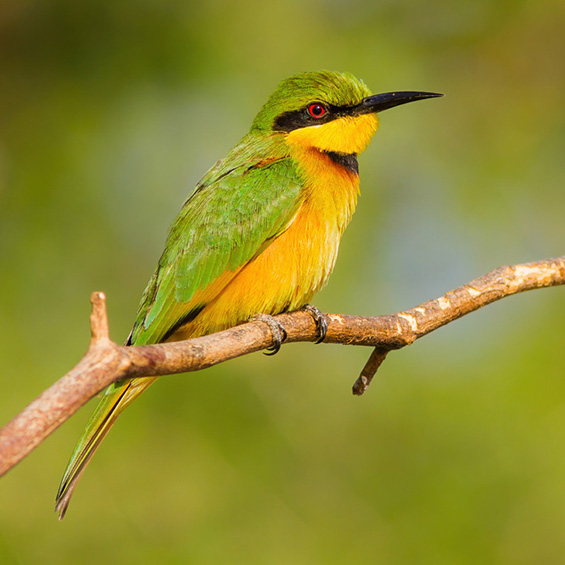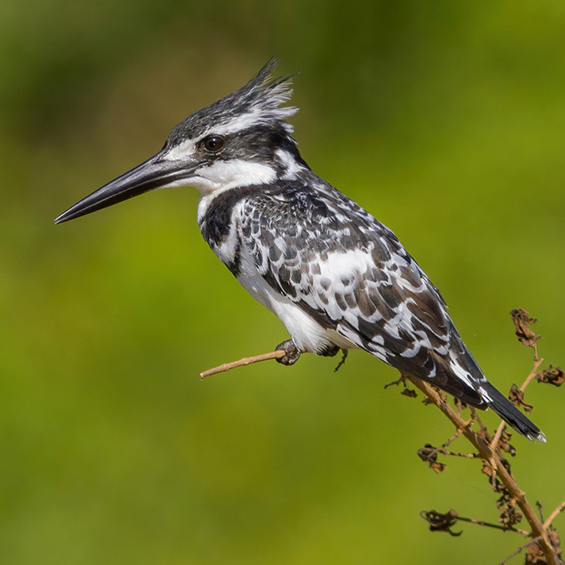Tanzania Raptor Safari
Tanzania Raptor Safari
Combine the Tanzania Raptor Safari back-to-back with the Kenya Raptor Safari for an unmatched East African birding experience!
Share this!
I never knew of a morning in Africa when I woke up that I was not happy.
—Ernest Hemingway
Wilderness gave us knowledge. Wilderness made us human. We came from here. Perhaps that is why so many of us feel a strong bond to this land called Serengeti; it is the land of our youth.
—Boyd Norton
Raptors & the Realm of the Serengeti
Tanzania is East Africa’s crown jewel of wilderness—home to the fabled Serengeti, the Great Migration, and some of the richest raptor habitats on the continent. With over 80 species of diurnal raptors recorded, including widespread African residents, localized endemics, and long-distance Palearctic migrants, Tanzania offers a thrilling stage for raptor watching at its best.
This tour is designed to spotlight Tanzania’s birds of prey against a backdrop of dramatic landscapes and iconic wildlife. We’ll explore the misty montane forests of Arusha National Park, scan the baobab-studded savannas of Tarangire for elephants and eagles, and bird along the shores of Lake Manyara, famed for its tree-climbing lions and soda lakes teeming with pelicans and storks.
We then descend into the legendary Ngorongoro Crater, where bustards and cranes share the crater floor with rhinos and hyenas, before venturing into the vast open plains of the Serengeti. From the rock-studded kopjes of the west to the wide northern savannas near the Mara River, we’ll track raptors across some of Africa’s most iconic landscapes.
Target species include Martial Eagle, Steppe Eagle, Secretarybird, Pygmy Falcon, Palm-nut Vulture, African Hawk-Eagle, and Grey Kestrel—alongside a dazzling diversity of larks, hornbills, bee-eaters, and other savanna specialists. This immersive safari aims for 50+ raptor species and excellent chances to see all of Africa’s Big Five, offering world-class photography, exceptional birding, and unforgettable encounters in the beating wild heart of East Africa.

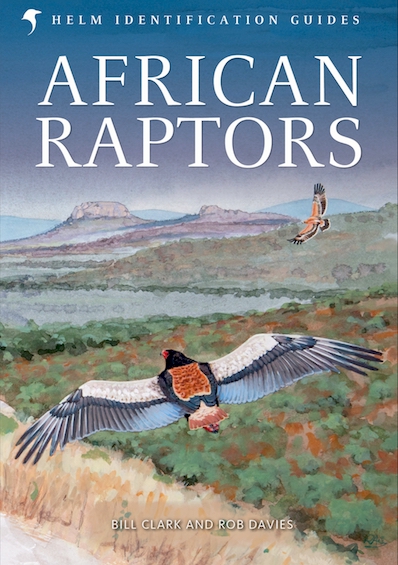
Get up to speed before you leave home!
The African Raptors field guide covers 106 species of dirunal raptors occurring in Africa, featuring stunning 52 color plates, and more than 300 color photographs.
Get it at Amazon.com. Kindle and Hardcover Editions available.
Make A Difference!
Raptours®, L.L.C. makes a financial contribution to Hawk Mountain Sanctuary for every member that signs up for this tour. Join us on this tour and make a lasting contribution to raptor conservation!
Day-by-day Itinerary
DAY 1
Monday, December 1
ARRIVAL IN TANZANIA (KILIMANJARO AIRPORT) – TRANSFER TO ARUSHA
Welcome to Tanzania! We’ll arrive at Kilimanjaro International Airport (IATA Code JRO), where our local team will greet us and transfer us to our comfortable lodge on the lush outskirts of Arusha. We’ll settle in, enjoy our first meal together, and rest up for the exciting days ahead.
Overnight at Mt. Meru Game Lodge, Arusha.
DAY 2
Tuesday, December 2
ARUSHA NATIONAL PARK
We’ll spend a full day exploring Arusha National Park, a spectacular mosaic of habitats nestled around Mt. Meru. We’ll bird by vehicle and on foot in picnic areas, covering a range of elevations and ecosystems.
This park has a great highland forest nestled around Mt. Meru where Maasai Giraffes, Common Waterbucks, Common Zebras, Common Warthogs, Red Duikers, Bushbucks, Black-and-white Colobus Monkeys and Ochre Bush Squirrels roam gracefully. There is also a beautiful savannah grassland on the drier slopes. Several lakes and streams also dot the park, and these host many birds.
Raptor Targets: Ayres’s Hawk-Eagle, Tawny Eagle, Crowned Eagle, Martial Eagle, Augur Buzzard, Mountain Buzzard, Yellow-billed Kite, Black-shouldered Kite, Gabar Goshawk, African Goshawk, Little Sparrowhawk, Black Sparrowhawk, Amur Falcon.
Many bird species can be expected here including the Silvery-cheeked Hornbill, Scaly Francolin, African Black Duck, Striated Heron, Mountain Wagtail, Grey-olive Greenbul, Stripe-faced Greenbul, African Wood-Owl, Black-throated Wattle-eye, Rameron Pigeon, Hamerkop, Kilimanjaro White-eye, Giant Kingfisher, Brown-hooded Kingfisher, Peter’s Twinspot, Retz’s Helmetshrike, Cinnamon-chested Bee-eater, Ruppell’s Robin-Chat and Hartlaub’s Turaco.
Overnight at Mt. Meru Game Lodge, Arusha.
DAYS 3–5
Wednesday–Friday, December 3–5
TARANGIRE NATIONAL PARK
We head into Tarangire National Park, famous for its massive Baobab trees, abundant African Elephants, and impressive raptor diversity. Over the next three days, we’ll explore acacia woodlands, riverine corridors, and open plains in search of charismatic mammals and a wide range of bird species.
Raptor Targets: Pygmy Falcon, Common Kestrel, Lesser Kestrel, Gabar Goshawk, Eastern Chanting-Goshawk, Bateleur, Palm-nut Vulture, African Hawk-Eagle, Tawny Eagle, Steppe Eagle, Montagu’s Harrier, Pallid Harrier, Western Marsh Harrier, Brown Snake-Eagle, Black-Chested Snake-Eagle, Secretarybird, Steppe Buzzard.
Bird highlights include Yellow-collared Lovebird, Woodland Kingfisher, Double-banded Courser, White-headed Buffalo-Weaver, Coqui Francolin, Pygmy Falcon, Brown Snake Eagle, Mottled Spinetail, Southern Ground Hornbill, Meyer’s Parrot, Bearded Woodpecker, Magpie Shrike, Red and Yellow Barbet, Rufous-tailed Weaver and Ashy Starling.
Tarangire is also excellent for large mammals such as African Lions, Leopards, Cheetahs, Banded Mongooses, Cape Buffalo, Common Zebras, and Impala.
Overight at Tarangire Sopa Lodge.
DAY 6
Saturday, December 6
LAKE MANYARA TO NGORONGORO HIGHLANDS
We depart early for Lake Manyara National Park, a scenic soda lake nestled at the base of the Rift Valley escarpment. We’ll spend the morning birding here, with possible sightings of Grey-olive Greenbul, Purple-crested Turaco, Crested Guineafowl, Bare-faced Go-away-bird, Blue-capped Cordon-bleu, Yellow-billed Stork, Silvery-cheeked Hornbill, Abyssinian Scimitarbill, Slate-colored Boubou, Goliath Heron, Hildebrandt’s Starling, and Great White Pelican.
Raptor Targets: Western Marsh Harrier, Eurasian Hobby, African Hawk-Eagle, Martial Eagle, Crowned Eagle, African Fish Eagle, Tawny Eagle, Steppe Eagle, Common Kestrel, Lesser Kestrel, Grey Kestrel,
Mammals include several species of monkeys, Savannah Elephants, Bushbuck, Hippos, Massai Giraffe, and the park’s famous tree-climbing Lions.
In the afternoon, we ascend into the cooler air of the Ngorongoro Highlands, birding for Augur Buzzard along the way.
Overnight at Ngorongoro Serena Lodge.
DAY 7
Sunday, December 7
NGORONGORO CRATER
We descend into the breathtaking Ngorongoro Crater, a UNESCO World Heritage Site and one of Africa’s natural wonders. At over 2,000 m elevation and 600 m deep, the crater floor offers an unmatched wildlife spectacle. The crater is nestled in a pristine natural forest, full of beautiful indigenous trees. Descending down the crater floor takes you through great scenery and you get to experience the local Euphorbia tree varieties.
Raptor Targets: Secretarybird, Ruppell’s Vulture, White-Backed Vulture, Pallid Harrier, Montagu’s Harrier, Western Marsh Harrier, African Fish Eagle, Tawny Eagle, Steppe Eagle, Augur Buzzard.
Bird hightlights include Hildebrandt’s Francolin, Shelley’s Francolin, Grey Crowned Crane, Fan-tailed Widowbird, Pectoral-patch Cisticola, Lyne’s Cisticola, Pied Avocet, Yellow-throated Sandgrouse, Black-bellied Bustard, Kori Bustard, Rosy-breasted Longclaw, Lesser Flamingo, Greater Flamingo, Chestnut-banded Plover, and Rufous-tailed Weaver.
We’ll also look for Lions, Black Rhinos, Comon Zebras, African Golden Wolves, Grant’s Gazelles, and White-bearded Wildebeest.
Overight at Ngorongoro Serena Lodge
DAYS 8–11
Monday–Thursday, December 8–11
SERENGETI NATIONAL PARK (WESTERN & NORTHERN REGIONS)
We journey into the legendary Serengeti, birding en route and watching for wildlife. We’ll split our time between the Western Corridor and Northern Serengeti, giving us full access to diverse habitats: from open savannah to wetlands, kopjes (granite outcrops), and scattered woodlands.
Raptor Targets: Secretarybird, Black-Shouldered Kite, White-Headed Vulture, Hooded Vulture, Lappet-Faced Vulture, Montagu’s Harrier, Pallid Harrier, Ovambo Sparrowhawk, Levant Sparrowhawk, Dark Chanting-Goshawk, Brown Snake-Eagle, Black-Chested Snake-Eagle, Martial Eagle, Wahlberg’s Eagle, Tawny Eagle, Steppe Eagle, Long-Crested Eagle, Lesser Spotted Eagle, Greater Kestrel, Grey Kestrel.
There will be heaps of big game and wonderful birds to enjoy here as we transect the area. Look out for animals such as Leopards, Cheetahs, Black Rhino, African Buffalo, Thomson’s Gazelles, Maasai Giraffe, White-bearded Wildebeest, Common Eland, Topi, Coke’s Hartebeest, Klipspringer, Common Zebras, Savannah Elephant and African Lions.
Bird highlights include Fischer’s Lovebird, Usambiro Barbet, Swahili Sparrow, Karamoja Apalis, African Scops-Owl, Temminck’s Courser, Zitting Cisticola, Tanzania Red-billed Hornbill, Bare-faced Go-away-bird, Grey-crested Helmet-shrike, Magpie Shrike, Silverbird, Black-lored Babbler, Cape Teal, Saddle-billed Stork, Blacksmith Lapwing and Grey-breasted Spurfowl.
Overnight in Serengeti: 2 nights at Western Serengeti Serena Lodge, 2 nights at Mbuzi Mawe Camp, Northern Serengeti.
DAY 12
Friday, December 12
RETURN TO ARUSHA – DEPART KILIMANJARO
We make our way back across the savannah, birding as we go and soaking up our final views of East Africa’s extraordinary wildlife. In the afternoon, we head to Kilimanjaro Airport (IATA Code JRO) for our international departures—our minds full of unforgettable birds, wild landscapes, and incredible memories.
Target Species
common name
- Secretarybird
- Osprey
- Black-winged Kite
- Scissor-tailed Kite
- European Honey Buzzard
- Oriental Honey Buzzard
- African Cuckoo Hawk
- African Harrier Hawk
- Palm-nut Vulture
- Egyptian Vulture
- Bateleur
- Black-chested Snake Eagle
- Brown Snake Eagle
- Southern Banded Snake Eagle
- Western Banded Snake Eagle
- White-headed Vulture
- Hooded Vulture
- White-backed Vulture
- Rüppell's Vulture
- Lappet-faced Vulture
- Crowned Eagle
- Martial Eagle
- Long-crested Eagle
- Lesser Spotted Eagle
- Tawny Eagle
- Steppe Eagle
- Verreaux's Eagle
- African Hawk Eagle
- Wahlberg's Eagle
- Booted Eagle
- Ayres's Eagle
- Lizard Buzzard
- Dark Chanting Goshawk
- Eastern Chanting Goshawk
- Gabar Goshawk
- Western Marsh Harrier
- African Marsh Harrier
- Pallid Harrier
- Montagu's Harrier
- African Goshawk
- Shikra
- Little Sparrowhawk
- Ovambo Sparrowhawk
- Black Sparrowhawk
- African Fish Eagle
- Black Kite
- Augur Buzzard
- Eurasian Buzzard
- Mountain Buzzard
- Pygmy Falcon
- Lesser Kestrel
- Common Kestrel
- Greater Kestrel
- Grey Kestrel
- Red-necked Falcon
- Red-footed Falcon
- Amur Falcon
- Sooty Falcon
- Eurasian Hobby
- African Hobby
- Lanner Falcon
- Peregrine Falcon
latin name
- Sagittarius serpentarius
- Pandion haliaetus
- Elanus caeruleus
- Chelictinia riocourii
- Pernis apivorus
- Pernis ptilorhynchus
- Aviceda cuculoides
- Polyboroides typus
- Gypohierax angolensis
- Neophron percnopterus
- Terathopius ecaudatus
- Circaetus pectoralis
- Circaetus cinereus
- Circaetus fasciolatus
- Circaetus cinerascens
- Trigonoceps occipitalis
- Necrosyrtes monachus
- Gyps africanus
- Gyps rueppelli
- Torgos tracheliotos
- Stephanoaetus coronatus
- Polemaetus bellicosus
- Lophaetus occipitalis
- Clanga pomarina
- Aquila rapax
- Aquila nipalensis
- Aquila verreauxii
- Aquila spilogaster
- Hieraaetus wahlbergi
- Hieraaetus pennatus
- Hieraaetus ayresii
- Kaupifalco monogrammicus
- Melierax metabates
- Melierax poliopterus
- Micronisus gabar
- Circus aeruginosus
- Circus ranivorus
- Circus macrourus
- Circus pygargus
- Accipiter tachiro
- Accipiter badius
- Accipiter minullus
- Accipiter ovampensis
- Accipiter melanoleucus
- Haliaeetus vocifer
- Milvus migrans
- Buteo augur
- Buteo buteo
- Buteo oreophilus
- Polihierax semitorquatus
- Falco naumanni
- Falco tinnunculus
- Falco rupicoloides
- Falco ardosiaceus
- Falco chicquera
- Falco vespertinus
- Falco amurensis
- Falco concolor
- Falco subbuteo
- Falco cuvierii
- Falco biarmicus
- Falco peregrinus
Suggested Field Guides
Clark, W. S., and R. Davis. 2018. African Raptors. Helm Identification Guides.
Zimmerman, D. A.. 2025. Birds of Kenya and Northern Tanzania. Paperback. Helm Field Guides.
Need to Know
TOUR DATES & AVAILABILITY
1 - 12 December 2025 | 6 places
SMALL GROUP SIZE
4 - 6 Participants
TOUR PRICE
Tour price is US$8,495 and includes hotels (double occupancy), all meals, water provided inside the vehicle, ground transportation, boat rides, NP entry fees, and tour leader, local guide, and driver fees.
Flights to and from Kilimanjaro Int. Airport, entrance visas (if applicable to you), extra nights, personal drinks at the lodges, items of personal nature, tips, and insurance of any kind are not included.
A non-refundable Registration Fee of US$500 will be requested at the time of booking. This fee counts against the total tour price.
Single supplement is US$900.
Roommates will be assigned to those participants willing to share a room. If a roommate is not available, you will be required to pay the single supplement.
BOOKING & PAYMENT
Use the ‘Book This Tour’ button above to fill out the online booking form at your earliest convenience. Participants will be accepted on a first come, first served basis. This online form is contractual.
Once your application information is reviewed, and your application approved, the non-refundable Registration Fee will be requested.
Once we have reached the minimum number of participants (4) the remaining balance, plus any applicable Single Supplement fees will be requested. Wire transfer is the preferred method of payment. Credit card payments are also accepted but a $300 handling fee applies.
Full payment is due by the time the minimum number of participants (4) is attained.
Booking deadline is 1 October 2025.
TRIP CANCELLATIONS
All cancellation requests must be made in writing to Raptours, L.L.C.
Cancellations requested before 1 October 2025 will be subject to a full refund, minus the non-refundable $500 Registration Fee.
No refunds will be made for cancelations requested on 1 October 2025 or after. No exceptions.
Raptours, L.L.C. reserves the right to cancel the tour at any time with full refund (including the Registration Fee) to participants.
Travel cancellation insurance is recommended.
DIFFICULTY
Easy. No strenuous walks are necessary. Some long drives involved.
COMFORT
Good to Very Good | Guide-to-participant ratio 1:3 or better
We will stay in 3-star (one), 4-star accommodations, comfortable safari lodges and safari camps. Internet availability may be limited. We will travel in a comfortable open-top vehicle driven by a devoted, experienced driver.
ALL PARTICIPANTS WILL HAVE A WINDOW SEAT
WEATHER & CLOTHING
Average teperatures in northern Tanzania in November range from chilling low 50s F (10 C) near Ngorongoro, and an average high in the low 90s F (32 C) at the Kilimanjaro Airport. November is the onset of a brief rainy season, so scattered showers are to be expected. Bring a hat, sunscreen, comfortable shoes, and sunglasses. A folding umbrella might come in handy. Bring a refillable water bottle, and of course, binoculars. Bring a camera. Yes, your will be able tu use your big telephoto lens from the vehicle!
TOUR START & END POINTS
Tour starts at the Kilimanjaro International Airport (IATA Code: JRO) where your will meet the tour leader, and transfer to the hotel. Tour ends at the same airport.
If you join also the KENYA RAPTOR SAFARI we'll fly one-way as a group from Nairobi to Kilimanjaro International Airport (IATA Code: JRO). If you choose to fly back to Nairobi at the end of the Tanzania Raptor Safari, please let us know so we can make the arrangements.
Tour Leader
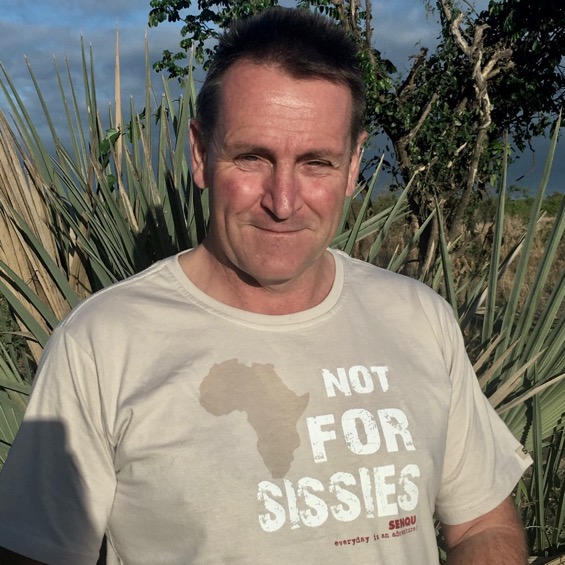
Andre Botha has worked for the conservation of African vultures in southern Africa, and all wildlife in Africa for many years. Andre is a keen spotter and dead-on on raptor ID. He understands bird and wildlife photography and will help you take better photos. He knows the goeology, vegetation, megafauna, culture and history of Africa. Andre knows Africa, he is a natural leader, and has a subtle sense of humor too!
Tour Showcase
Terms
Raptours, L.L.C. reserves the right to alter this itinerary as necessary, or to cancel the tour prior to departure, with full refund to participants.
Raptours, L.L.C. or its agents may decline to accept or retain any person as a member of this tour at any time.
No smoking will be permitted while with the group, either when indoors or in the field.
Travel medical insurance is strongly recommended.
All passengers will be required to sign a hard copy of the Release of Liability and Assumption of Risk form upon meeting with the tour leader at the begining of the tour.
No participants will be allowed in the group without a signed copy of the Release of Liability and Assumption of Risk form.
Release of Liability and Assumption of Risk Form
(including Terms)
![]()



